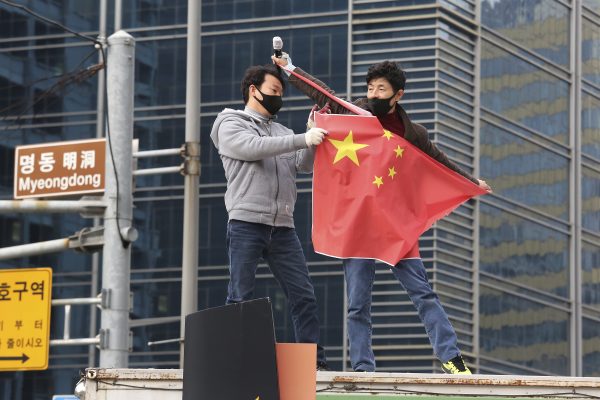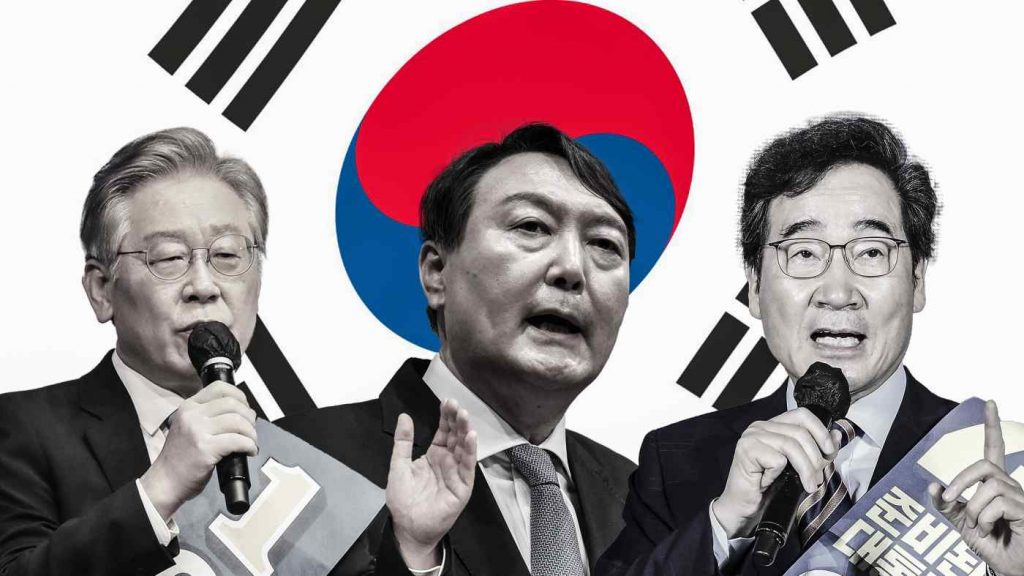
- China claims Korea’s ancient kingdoms as part of its own national history.
- The THAAD missile deployment, disqualification of its athletes at Winter Olympics, China trying to usurp Korean traditional dishes have added to the anti-China sentiments.
- The 2022 Presidential elections have become the bone of contention between the two countries.
China has problems with all its neighbors in land, air, water and in space too. It never follows the rules based order of the world. It openly violates and tries to change borders as per its volition. It violates international laws by illegally fishing in the maritime boundaries of its neighbors. It displays its scant respect for international norms by standing with countries like North Korea, Pakistan, Syria which have been sanctioned by the international community. China’s support for non-state terror actors and defending them in United Nations Security Council is a big embarrassment for it. World knows how it hosted the Taliban.
In East Asia too, Japan, Taiwan, Mongolia are tired of China’s unilateral acts. Recently its relationship with South Korea is turning for the worse. According to data from the Pew Research Center, just about 37% of South Koreans had a negative view of China in 2015. This figure more than doubled to 75% by 2020. Recent opinion polls suggest South Korean perceptions of China are now roughly equal to views about Japan, Korea’s former colonial ruler. In a Carnegie poll conducted in Seoul in November 2019, only a quarter of those surveyed replied that they trusted China as a unification partner, while almost three-quarters said they did not trust Beijing very much. Relatedly, when asked which countries were likely to be a unified Korea’s biggest threat, more than half answered China. By comparison, less than a third said Japan, and just 8.3 percent said the United States. Few instances suggest why the animosity for China is growing in South Korea.
First, China’s long-standing efforts to claim Korea’s ancient kingdoms as part of its own national history. The territory of the Korean kingdoms known as Goguryeo and Balhae overlap with what is now part of modern China but Chinese state media depicts the entire region as its own.
Second, the dispute over Kimchi. Kimchi, a fermented cabbage dish ubiquitous in Korea, is served almost at every meal and the Koreans consider it as a national dish. China had set the industry benchmark for pacoai, which it said also included kimchi. Many experts noted that paocai and kimchi are not the same dish. But the authoritarian way in which China created its own version of kimchi was highly offensive to the Koreans.
Third, the THAAD deal. In 2017, Seoul installed the Terminal High Altitude Area Defense U.S. missile defense system, known as THAAD, to counter the threat posed by North Korea. Beijing objected to the deployment and waged economic retaliation. Chinese tour groups halted trips to South Korea. Stores in China belonging to Lotte, the South Korean conglomerate were shut down, citing lack of regulatory approval. South Korea’s K-pop musicians, wildly popular among Chinese, had their tours canceled and have since been unable to hold concerts in mainland China. South Korea lost billions of dollars due to these measures by China.
Fourth, affront to South Korea in the Winter Olympics. During the Winter Olympics in Beijing a woman dressed in a pink hanbok, a traditional Korean dress, carried a Chinese flag while marching in the Olympics opening ceremony. Many South Koreans were outraged, seeing it as Beijing’s latest attempt to appropriate beloved aspects of Korean culture.
Fifth, disqualification of South Korean skaters. Last week, two South Korean short track speed skaters were disqualified for moves deemed illegal, allowing a pair of Chinese skaters to advance and eventually win gold and silver medals. South Korean media outlets echoed discontent, accusing Beijing 2022 judges of bias in favor of China. “Just let the host country China take all the medals,” declared an article in the Seoul Sinmun newspaper, which began by repeating that sentence 11 times. SBS, a major South Korean broadcaster aired a segment titled Top 10 Worst Moments of Cheating by China, featuring past incidents involving Chinese athletes.

Sixth, 2022 Presidential elections in South Korea. The March 9,2022 Presidential elections have become the bone of contention between China and South Korea. Presidential candidates have been overtly expressing anti-Chinese sentiments and are arguing for a harder line on Beijing. People Power Party nominee Yoon Suk-yeol has been arguing in favor of backing out of the “inter-Korean military agreement”, “pursuing additional anti-missile system deployment,” and “doing away with South Korea’s submissive diplomacy toward China,” as well as his remark that “young [South Koreans] dislike China.” Suk-yeol argues that China deserves criticism for its return to authoritarianism and its high-handed behavior in Taiwan, Hong Kong and the South China Sea. “We will also need to respond more assertively if China attempts to dismiss South Korea as a ‘small country’” he has said during his speeches.
Democratic Party presidential nominee Lee Jae-myung has also taken a hard stand on China’s Violation of illegal Fishing of Chinese Boats in the Korean Peninsula by promising to “strongly crack down” on Chinese vessels fishing illegally off South Korea’s coast.
In conclusion, China’s so-called “wolf warrior” approach to diplomacy is alienating South Koreans at an alarming pace. China due to its own acts and behavior is losing its friends throughout the world. The anti-China sentiments that started in Solomon Islands, has spread to Korea and can extend to Asia, Africa, Europe, Indo-Pacific and the Americas. In order to avoid such a scenario, China should start living with the world peacefully instead of indulging in debt-trap diplomacy, forcing droughts, altering the natural flow of rivers, supporting cross border terror, over-exploitation of mineral resources, and also stop interfering in the internal affairs of small nations.
(The views expressed are author’s own)
M.AM.PhiL/(PhD SNU South Korea)

How has this increased after China strengthened its support towards Russia while the Russia vs Ukraine situation continues despite pressure from NATO?
China is playing game Mongolia saying goes like this Yesterday Macau Today Hong Kong Tomorrow Taiwan next is Mongolia that can also be North Korea or …….
China want South Korea and North to be Vessel State listen to it they do not want any challenge in East Asia and isolate Japan
China game is stand with Russia good relation with France Germany: Take Gas from Russia sophisticate and use it for Super Power status for time being?
Russia China Iran Pakistan…all are moving in a boat but it is not good for world policitcs
Russia should become inward: Iran talk to world and China mend its ways?
But China wants Taiwan for semiconductors, North Korea for Rear Earth and South Korea to balance Japan and US
Thanks
T S Chandrashekar MA MPhiL PhD South Korea
TV Panelist Columnist International Affairs & Korea Expert